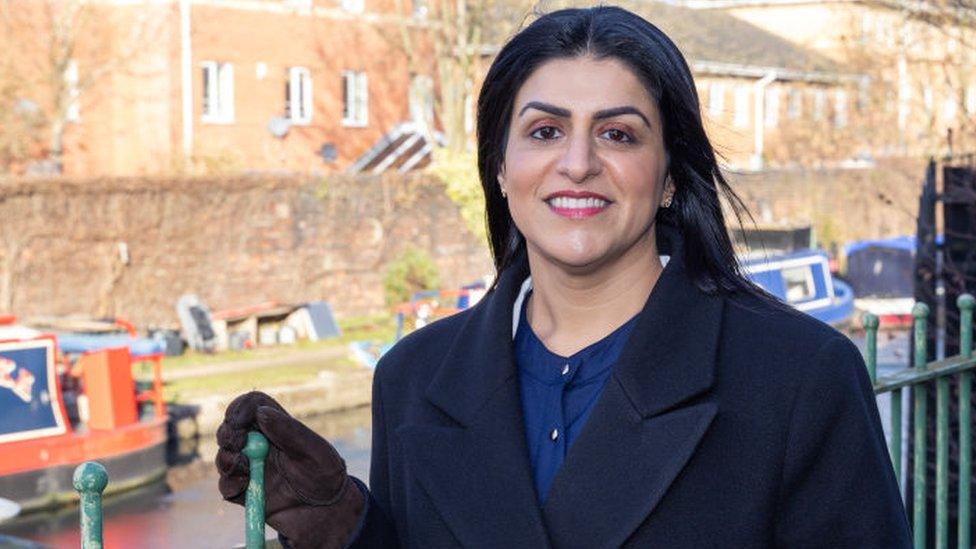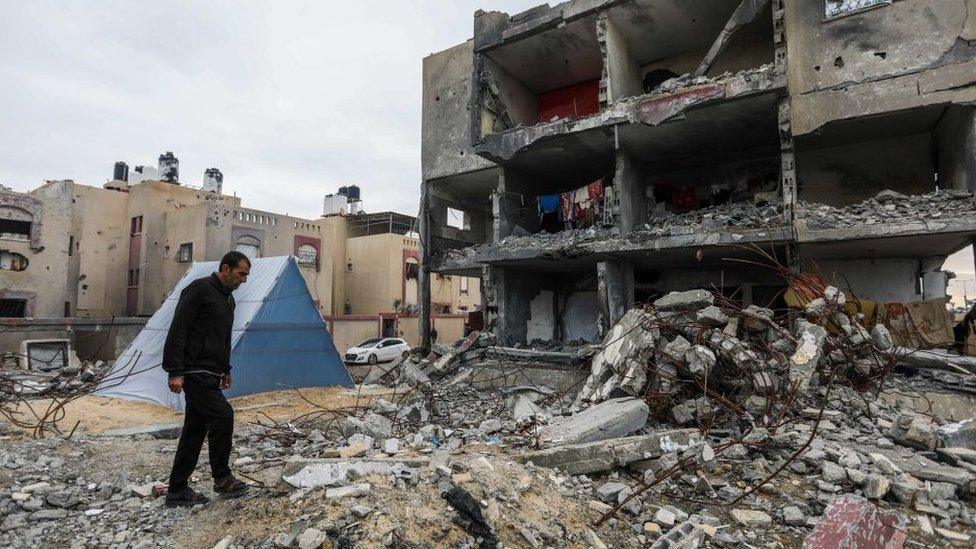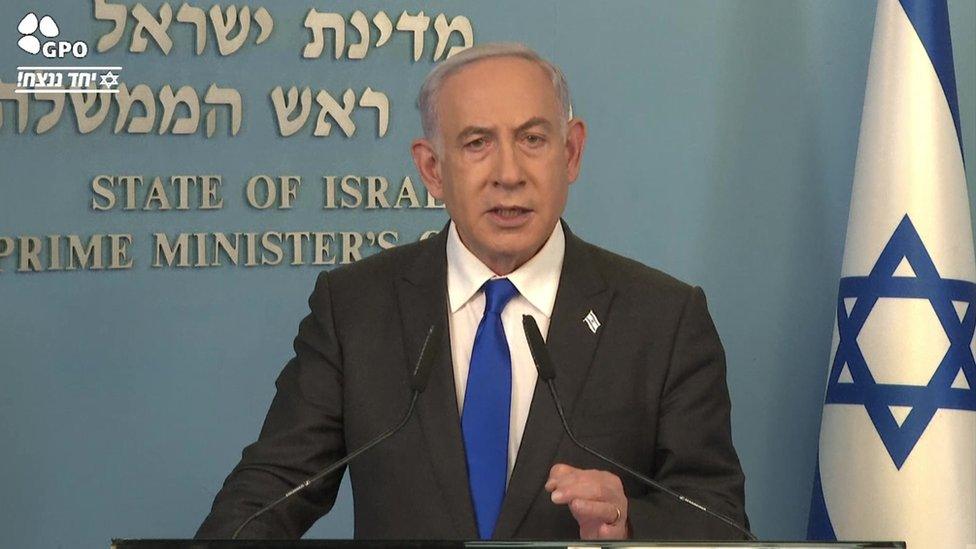Labour lost Muslim voters' trust over Gaza, says MP Shabana Mahmood
- Published

Shabana Mahmood, one of Labour's most senior Muslim MPs, says her party needs to "rebuild" relations with Muslim voters
Labour's shadow justice secretary has said there has been "a loss of trust" from British Muslims in her party over its position on the Israel-Gaza war.
Shabana Mahmood - one of Labour's most senior Muslim MPs - has urged it to "rebuild" relations with Muslim voters.
Ten Labour frontbencher MPs resigned over the party's initial reluctance to call for a ceasefire in the region.
Labour has since revised its position to call for a humanitarian halt in the fighting and a "sustainable ceasefire".
Speaking on Political Thinking with Nick Robinson, Ms Mahmood said she "wanted a ceasefire then, I want a ceasefire now".
It was "impossible to look at footage of dead children being pulled from the rubble" and to not "want the fighting to stop", she added.
"I wish it were possible, simply by calling for it, that you could immediately deliver" a ceasefire, she said.
"The question is not so much, do you just call for it, but how you actually deliver one?"
Israel declared war on Hamas after the group led an attack on communities inside Israel, killing about 1,200 people.
Since then more than 27,700 Palestinians have been killed and at least 65,000 injured by waves of missiles launched by Israel into the Gaza Strip in response, according to the Hamas-run health ministry.
Asked about Ms Mahmood's comments, Labour leader Sir Keir Starmer said the Israel-Hamas conflict had "caused great concern across the country".
He said the party wanted to see a "sustainable" ceasefire, including more aid deliveries, the release of hostages taken by Hamas, and steps towards a two-state solution, alongside a stop in the fighting.
"In the end, I think we all want to see the same thing," he added.

Thousands have died since Israel launched attacks on the Gaza Strip, in response to Hamas' killing of Israelis
The war between Israel and Hamas has triggered several conflicts within the Labour Party.
A flashpoint came when Sir Keir gave an interview to radio station LBC in October, external, in which he appeared to claim Israel had a right to cut off power and water from Gaza.
He later denied he had meant to support Israel cutting off supplies to the territory, saying he was instead supporting Israel's right to defend itself.
Ms Mahmood admitted "that was not a good moment" for her party.
Tensions again boiled over when 56 Labour MPs defied party orders and voted for an SNP motion in the House of Commons calling explicitly for a ceasefire.
A snapshot poll, external in November revealed that 41% of Muslim voters say they feel more negatively about Labour since the outbreak of the conflict.
'Partners for peace'
Among Muslim voters "there has been a sense of a loss of trust, and I think that that needs to be rebuilt, "she said.
"We aspire to be a party that can get votes from every part of our country and every community in our country. That has always been the Labour way and still the Labour way."
However, it is not just Muslims in Britain who are "feeling a very strong sense of, pain at what's unfolding. So do all British Jews".
"We are all British citizens together," she added.
"I think that if we lose our sense of humanity for what is being suffered by all of the peoples in that region, I think we lose something very, very important and very precious. And once gone, I think it's very difficult to get back."
She also criticised both Hamas and Israeli Prime Minister Benjamin Netanyahu for blocking a two-state solution.
"We have to urgently find partners for peace, because a one state solution does not make the people of Israel safe," she said.
"And it is an outrage to adopt a position that says that the people of Israel can have self-determination, but the people of Palestine cannot."
On Thursday, Mr Netanyahu rejected proposed ceasefire terms from Hamas- saying "total victory" in Gaza is possible within months.
Correction 13th February: This article wrongly reported that about 1,300 people had been killed following the 7th October attack by Hamas. This was based on counting those who later died from their injuries in addition to the figure of more than 1,200. The article has been amended to now refer to about 1,200 deaths, a figure which includes those deaths and which Israel says is not final.
You can listen to Political Thinking: The Shabana Mahmood One on BBC Sounds
Related topics
- Published7 February 2024
